- About us
- Company details
The historic Somma ‘pastificio’ is a small, entirely artisanal, company that has been producing pasta on this site for centuries.
It is located in the historic centre of Gragnano near Napoli, Sorrento, Pompeii, Capri (sud of Italy), recognised as the ‘birthplace of macaroni’.
We have recreated the manual production methods typical of Gragnano all those years ago, restoring the historic splendour of our lab in the only way possible: returning to the production of macaroni and a pasta museum.
Our process is based solely on the use of large-grain durum wheat semolina (as was once milled on the site), with high levels of gluten and proteins, all combined gently with water from the nearby springs, in the end followed by a low-temperature drying process tailored to each shape.
Year of establishment:
2011
Number of employees:
0
Annual turnover:
Under 250.000 Euro
Reference year of turnover:
2020
Export turnover:
Less than 75.000 Euro
Activities:
Manufacture of food products
Manufacture of farinaceous products
Manufacture of other food products nec
- Videos
- Catalogue
No videos uploaded
No documents uploaded
- Contact Information
- Business Proposals
Company:
PASTIFICIO SOMMA S.A.S. DI SOMMA SATURNO
Web site:
Address:
PIAZZA MARCONI 22
City:
GRAGNANO (NA)
Zip Code:
80054
E-commerce:
Social media:
Tag:
No business proposals uploaded
- Map
Product 1
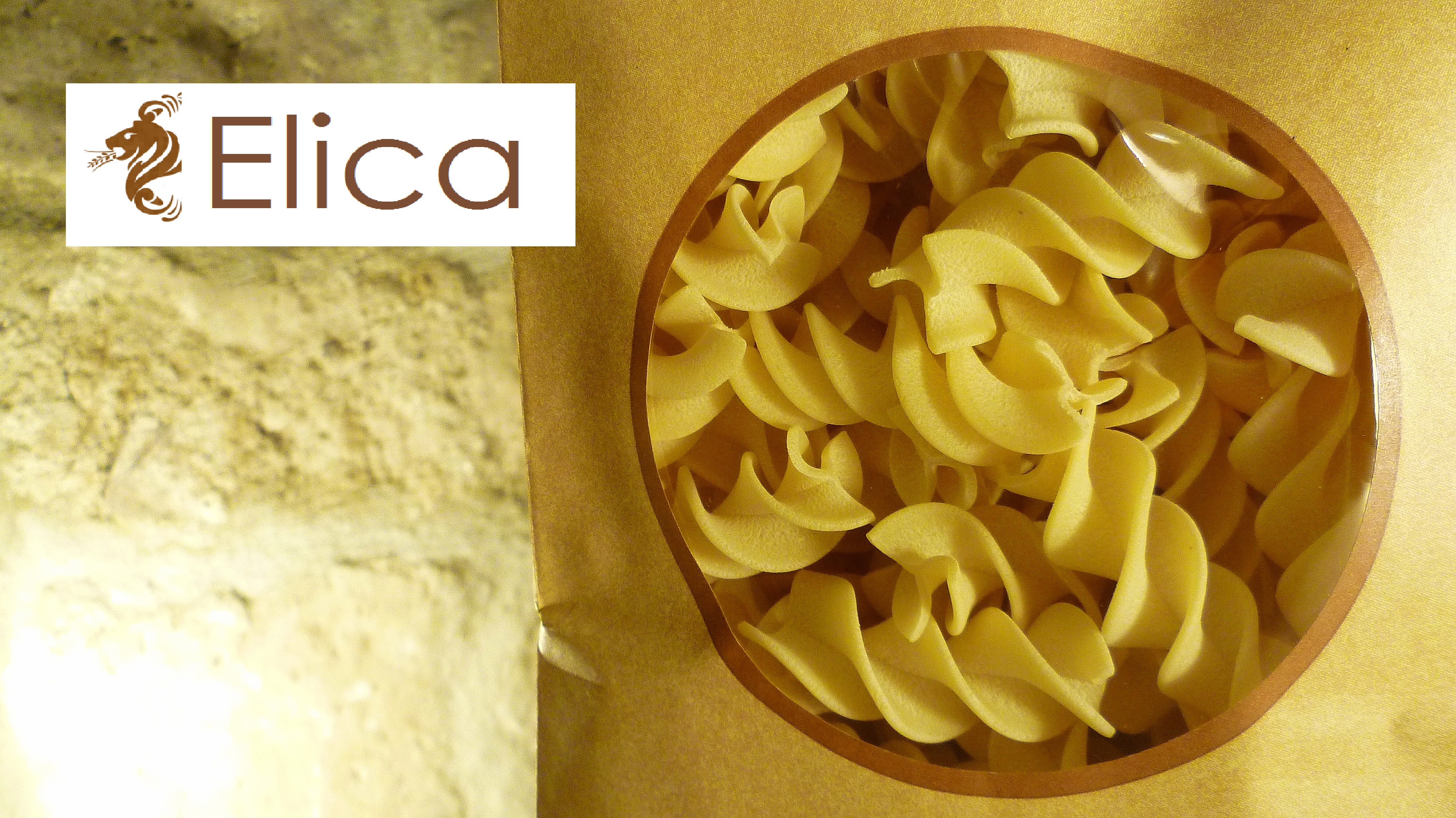
Eliche: these triple-helix pasta shapes include a high level of gluten in the pasta, which is formed when the pasta is added to water.
Product 2
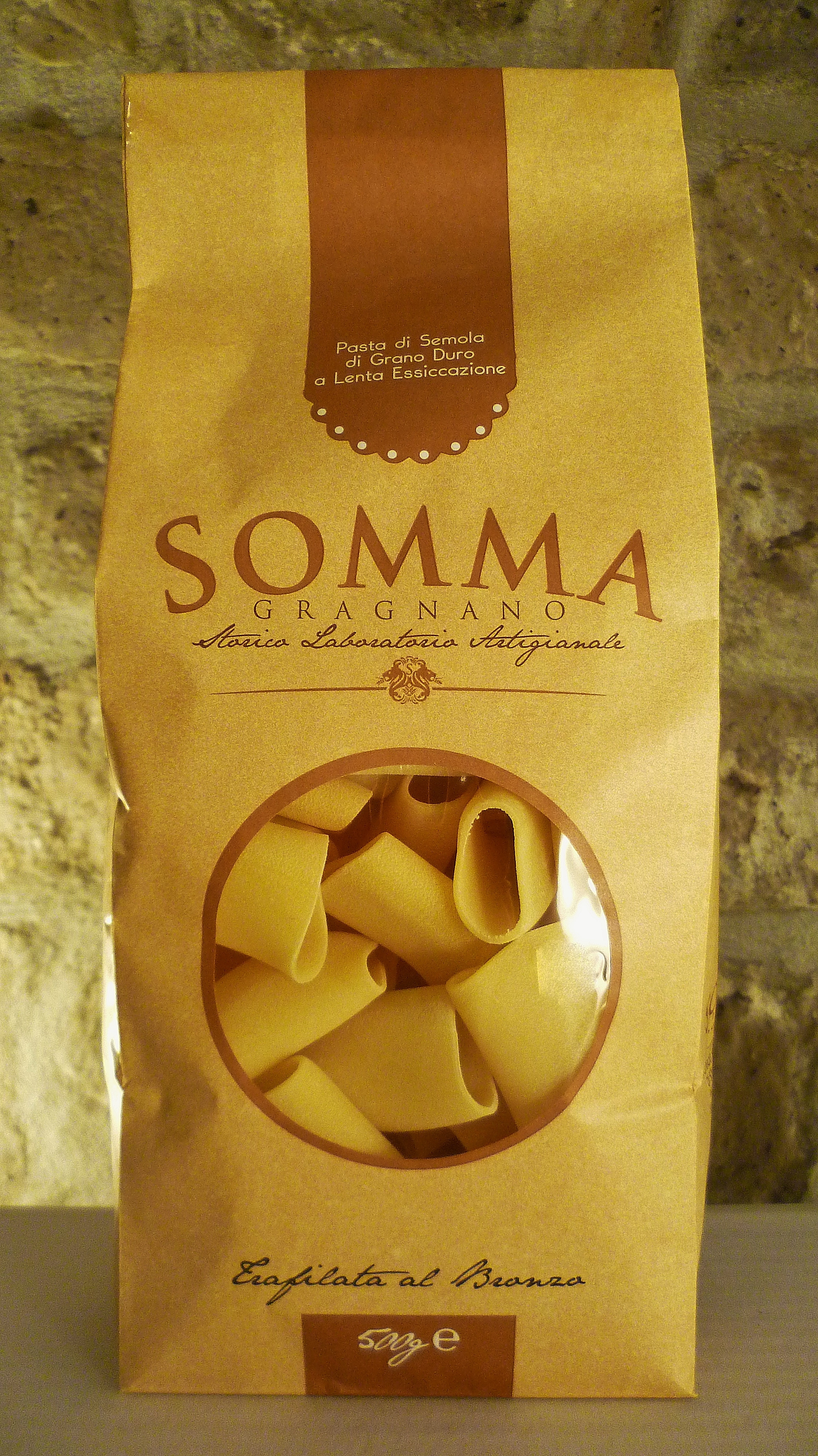
Paccheri: made using large-grained flour and dried carefully over thirty hours, thanks to its volume; on opening, the package releases a notable aroma of wheat.
Product 3
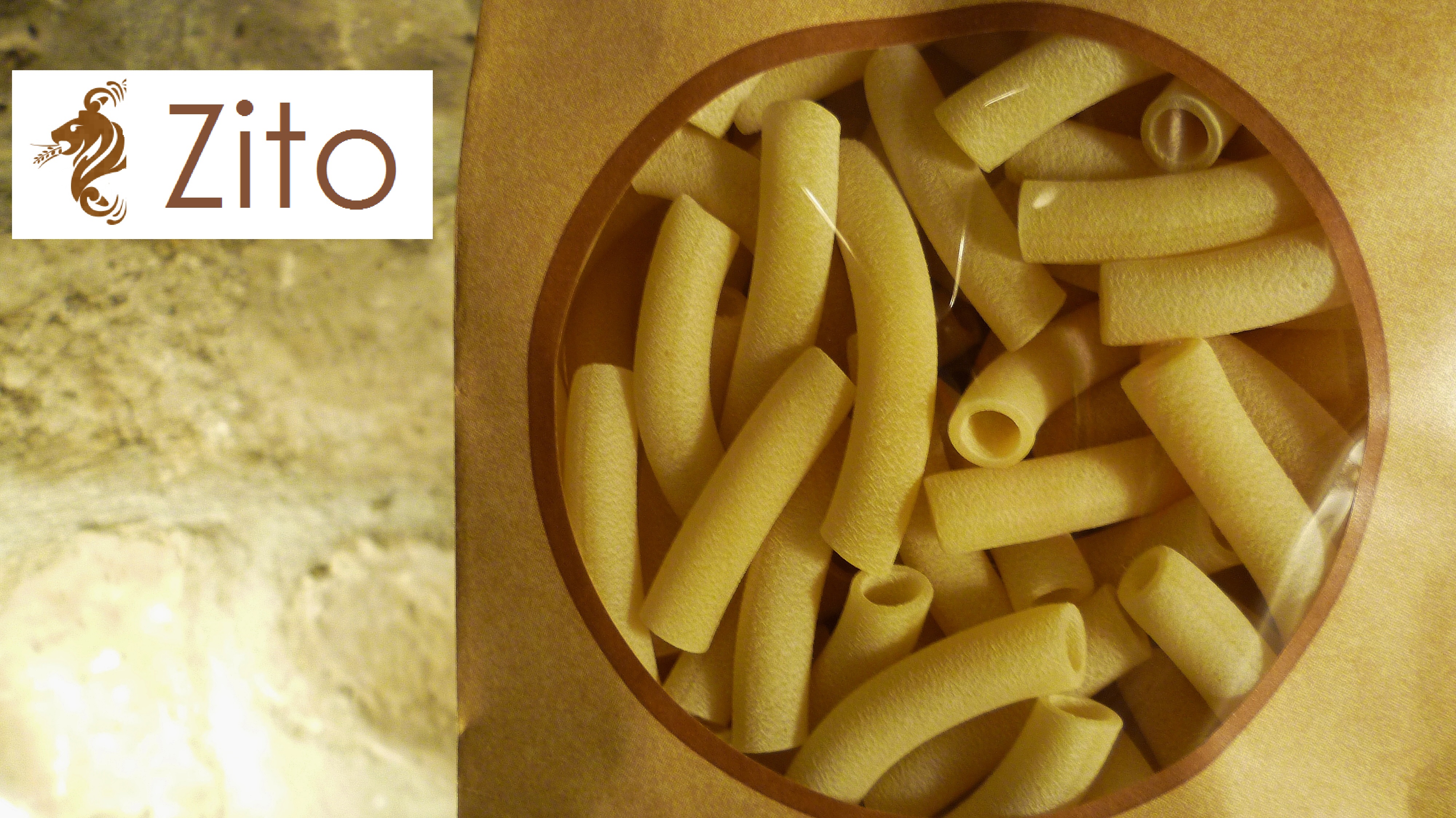
Ziti: the width of the inserts in this extruded shape create a cylindrical form that gives the pasta its firmness.
Product 4
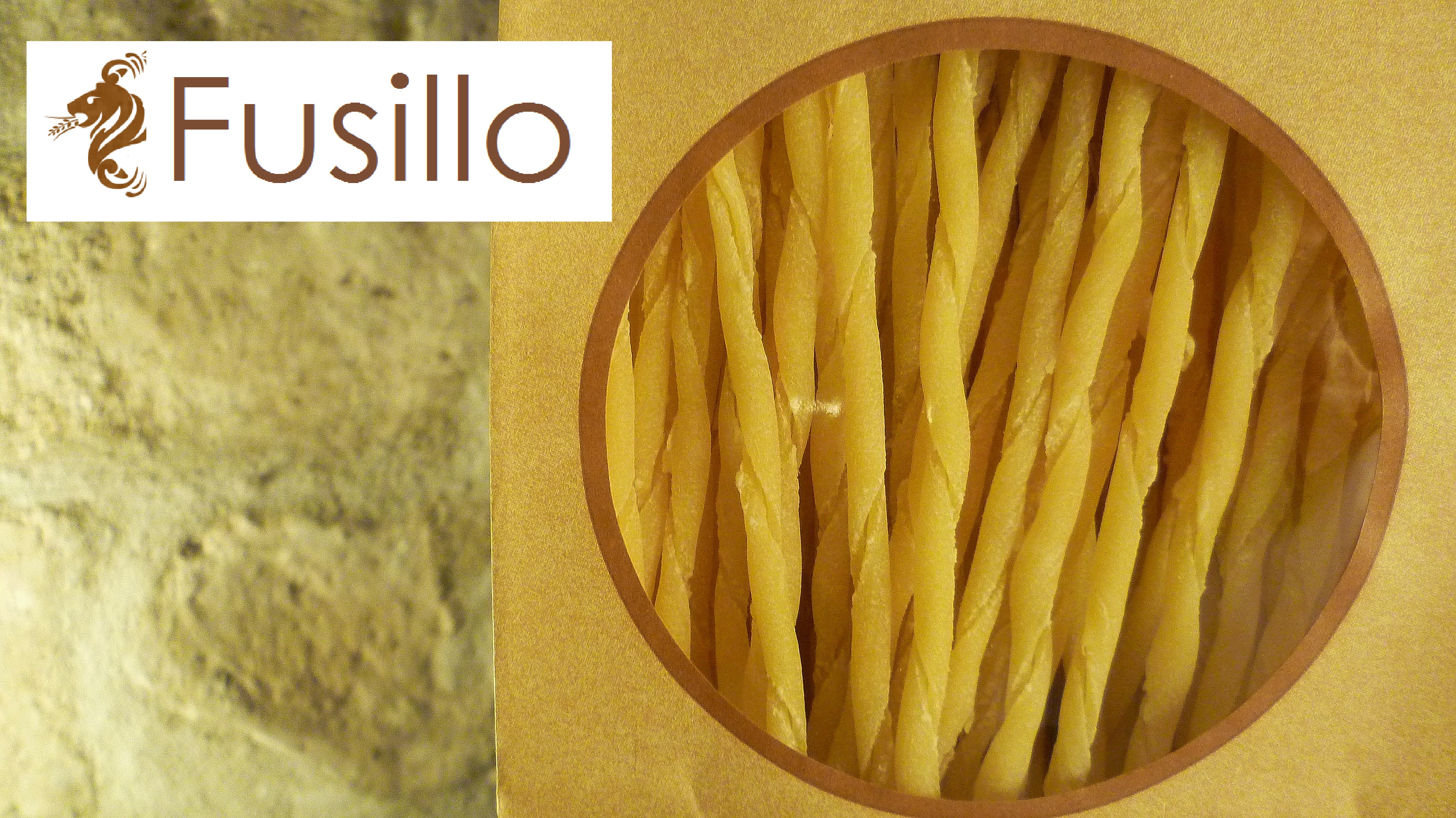
Fusillo: a typical local pasta shape, extruded slowly, mechanically, through a bronze template. Due to its initial fragility, it should not be mixed when added to water.
Product 5
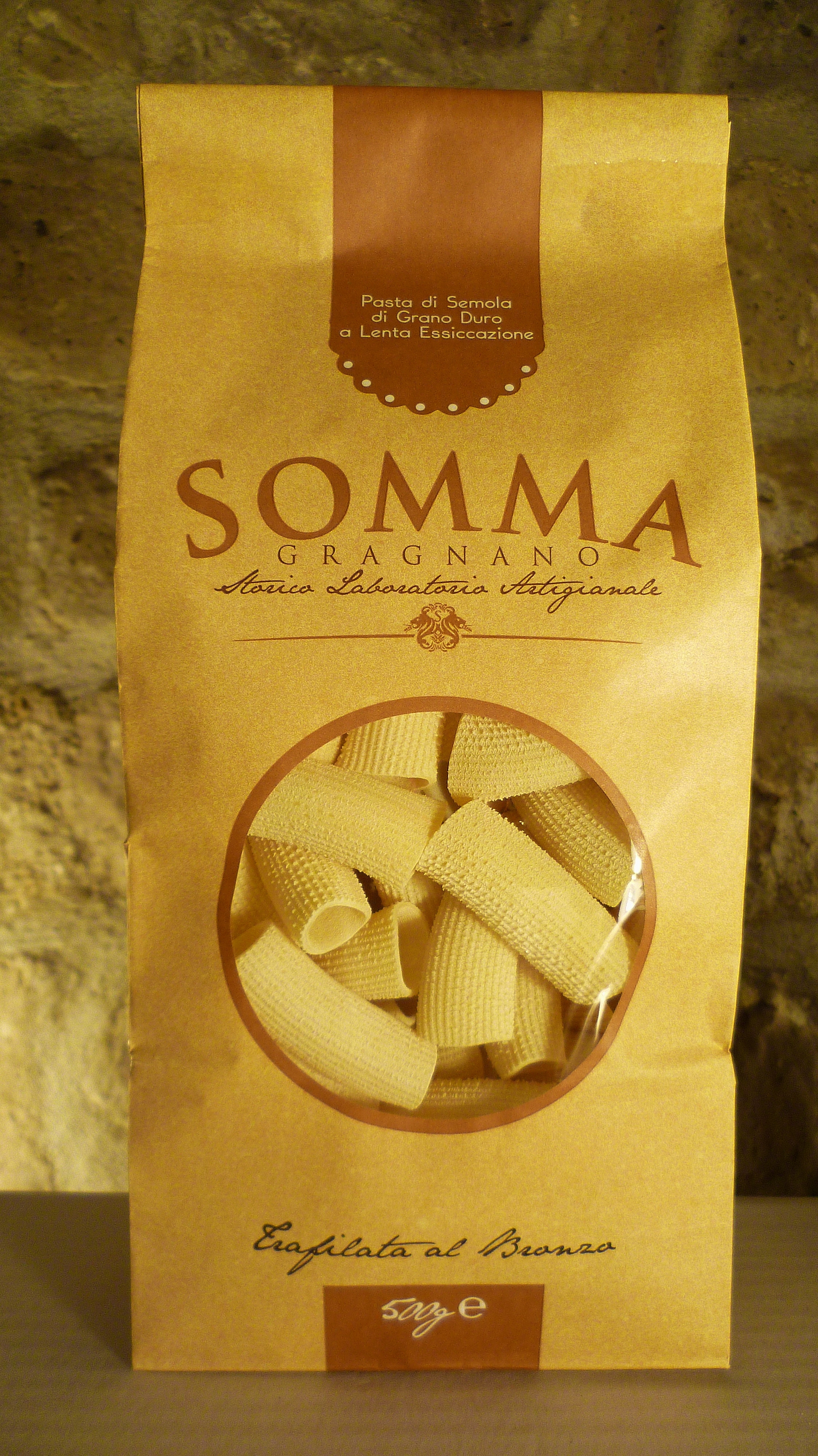
Rigatoni: brilliant tones in a shape that binds perfectly with sauces thanks to its unusually roughened surface.


